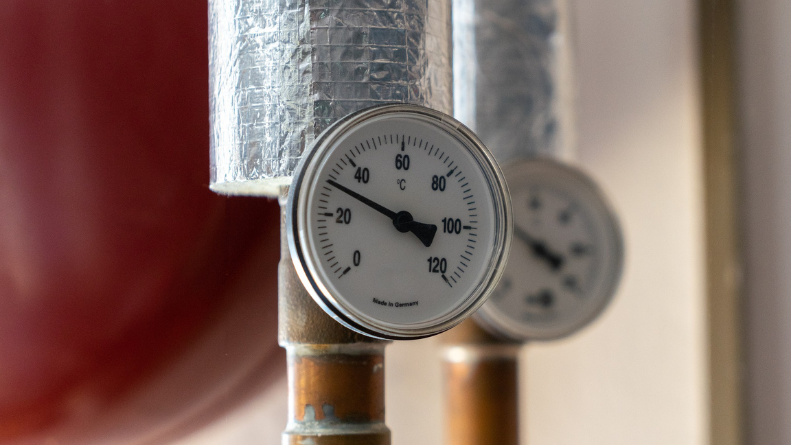How Can I Save Money and Energy in My Home?
The cost of living crisis that is gripping the UK, and indeed many parts of the world, is forcing many to think about how they can cut back and save, especially on energy.
Through the Energy Price Guarantee and Energy Bill Support Scheme, the government is helping families save an average of £1,300 on their energy costs this winter.
Plenty of simple, no-cost steps may be taken, and larger investments can provide hundreds in additional savings.
Every saving you can make adds up.
Tip 1: You may save as much as £100 per year by lowering the flow temperature of your combi boiler to 60 °C
The temperature of the water that your boiler distributes to your radiators is known as the “flow temperature.” The temperature in your home won’t drop much if you turn down the flow temperature, but it may take longer to get to the desired setting on your thermostat.
A slightly higher flow temperature of 65°C will guarantee your house heats more rapidly, which is especially helpful if you are over the age of 65 or have pre-existing health concerns.
See this video for more information on this energy saving tip: https://www.youtube.com/watch?v=IC2ihwjt-Kc&t=1s
Tip 2: You may save as much as £70 per year by lowering the temperature on radiators in places you rarely use.
Turn the radiator valves down to about 18 degrees Celsius (between 2.5 and 3) when a room won’t be used for a while. Raise the thermostat to an agreeable setting while you’re in the room. When a boiler needs to work harder to get the temperature back up after being turned off, it wastes more energy than if the radiators were left on at a low level.

Elderly adults, youngsters under the age of five, and people with pre-existing health issues are all more likely to have adverse effects from exposure to cold temperatures, so you need to take extra care. Keep your home at a minimum of 18 degrees Celsius to safeguard your health without sacrificing comfort.
See this video for more information on this energy saving tip: https://www.youtube.com/watch?v=W8ltEqn3ctU&t=2s
Tip 3: You may save as much as £70 per year by turning off appliances at the wall
Unless disconnected, almost all household electronics constantly consume energy. This includes electronics like computers, televisions, smart gadgets, and gaming consoles. When not in use, either flip the switch on the wall or pull the plug to cut power to the device.
Alternately, you can also buy cheap timer plugs that can be programmed to turn on or off on a schedule. These can be purchased for as little as £10 to £15.
Tip 4: You may save as much as £40 annually by washing your clothing at a lower temperature
Clothes may be properly washed in today’s modern washing machines at much lower temperatures. If your washing machine allows for it, reducing the temperature from 40°C to 30°C will allow you to wash your clothes in three cycles instead of two.
Tip 5: By reducing your use of the dryer, you might save £70 annually
It’s worth paying particular attention to tumble dryers because they use a lot of electricity compared to other household appliances.
By filling the drum to around three-quarters capacity each time, you may reduce the number of times you need to run the dryer. Dry them outside in the fresh air, or inside near an opened window. Also, don’t stuff your dryer so full of laundry that it takes longer to dry.
Tip 6: At night, make sure all blinds and curtains are closed
If your radiators are located below your windows, covering the drapes and blinds can help prevent warm air from escaping through the windows and lower your heating expenditures. Many people find it remarkable how much difference keeping the curtains closed can make, even with double glazing.
Tip 7: Use of an app to monitor energy use
There are free applications for smart metres that will allow you to monitor your energy use on an hourly basis over the course of a few days, a week, a month, or even a year.
So, you can figure out the safest and most practical ways to use less energy and save money.
Easy and inexpensive ways to upgrade your home
These steps will describe simple ways that you can make your house more energy efficient. In most cases, they may be installed for between £10 and £150, but they save a lot of money over time by saving energy and reducing your bills.
Tip 8: By inspecting for and fixing draughts, you may save as much as £60 annually
The cost of heating a home may be greatly reduced by draught-proofing it. Seal draughty vents in the ceiling, walls, and floors, as well as any openings in the windows, doors, and chimneys.
When applied to windows, window film acts as a temporary secondary glazing to reduce heat loss. It is sold at hardware stores and on the internet, and setup may be handled by the customer or a hired professional.
You can find out more about this tip in this short video: https://www.youtube.com/watch?v=-qLXtVpm5Ek&t=1s
Tip 9: The annual savings from using energy-efficient light bulbs is estimated to be £55
The inefficiency of regular or incandescent light bulbs is well-known. Lighting may be improved without increasing energy consumption or costs by switching to more efficient lights, such as LEDs. LED lights also last far longer than incandescent bulbs, which means less money spent on replacements.
In other words, you may receive the same light at a much reduced energy cost without compromising on either the volume of light or the colour of the light (white to yellow). Since they can contain toxic substances like mercury, make sure they are disposed of properly. For more information on the types of bulbs and how to dispose of them, visit here.
Tip 10: By putting in a smart metre, you can track your energy consumption and save money
You may monitor your energy expenditures and consumption patterns in more detail with the help of a smart metre installed in your home, which displays this data in near real time on a local display. With the automated readings that smart metres provide to your energy provider, you no longer have to worry about paying for energy you did not use and can better plan for the future.
A smart meter can be installed at no cost to you if you contact your utility company.
Participating in National Grid’s Demand Flexibility Service, which is available to smart metre customers, can result in further utility bill savings. As of now, this new service will be active until March 31, 2023. It aids National Grid in managing our power system this winter by compensating customers, through their energy provider or another approved service provider, for voluntarily reducing their electricity use during peak demand hours.
Improvements to your home to save money
Larger home renovations may cost more up front, but they may have a significant impact on your energy use and costs. In addition to enhancing health and well-being, they aid in preventing issues associated with condensation, dampness, mould, and draughts.
You might save as much as £70 annually by insulating your hot water cylinder
A hot water cylinder jacket can be found at most hardware stores and on the Internet and is worth the investment if you have a hot water tank. It lessens the cylinder’s heat loss and extends the time that water stays hot, both of which contribute to the tank’s efficiency and lower operating costs.
It has been estimated that installing a smart thermostat and heating controls might save you £60 per year in energy costs
Controlling your home’s temperature and heating with a smart thermostat or heating control gives you more options and more control over your energy use.
Smart controls are internet-connected and provide additional features, such as the ability to change the temperature in your house when you’re not there using your smartphone.
You might save as much as £355 per year by insulating your attic and roof
Adding insulation to your loft is one of the simplest methods to improve your home’s energy efficiency. If you don’t already have any, the Energy Saving Trust estimates that installing 270 millimetres’ worth may save you £355 per year. Increasing from 120mm to 270mm might result in a yearly savings of £35.
It’s not a very difficult task to do so you may be able to handle this on your own, or you can hire someone to help you.
It is possible that your energy costs might be reduced by upgrading to newer, more energy-efficient equipment
Energy efficiency is measured on a scale from A to G, with A being the highest and G the lowest, and this scale is applied to all electrical equipment, from dishwashers to fridges. Higher numbers indicate greater efficiency. Because of efficiency labelling, electrical appliance types can be compared in terms of power consumption.
If you’re currently using a washing machine with a rating of C, changing to one with an A rating might save you up to 25% on your annual laundry energy costs.
There is an annual savings potential of £455 if you install solar panels on your roof
Putting solar panels on your roof can reduce your annual power bill by as much as £455, according to the Energy Saving Trust. These panels absorb sunlight and transform it into usable power.
With the initial cost of installation covered, you may produce your own renewable power from the sun and save money on your utility bills. It’s likely that his technology will continue to advance as more people take it up. For example, you can now get roof tiles with built in solar panels.
Installing double glazing could result in annual savings of £235
The Energy Saving Trust estimates that switching from single to double glazing will save you £235 annually on energy costs. This will help lessen the impact of outside noise and draughts.
Get a subsidy from the government to replace your boiler with a heat pump
Heat pumps are more efficient than conventional boilers and use much less electricity to operate. Through the Boiler Upgrade Scheme, the government of England and Wales is paying rebates of up to £5,000 toward the purchase of heat pumps for eligible homes.
An estimate puts the annual savings from installing under-floor insulation at £110
Insulating the floors of your home may do more than just make the cold concrete underneath more bearable; it can also help you save money on your heating expenses.
ARE YOU READY TO START INVESTING?
Subscribe to our mailing list now for exclusive deals, investment guides and the latest information from the property market.






